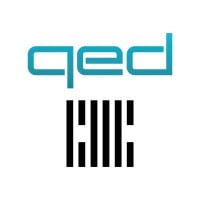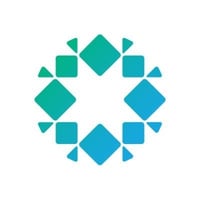QED (https://qed.ai) is a tech company focused on public health and food security in Sub-Saharan Africa. We build the digital infrastructure and AI used at the intersection of aid and scientific inquiry, including in-situ nutrient analysis of crops and soils, and surveillance of HIV and malaria at national-scale in multiple African countries. Our funding comes from philanthropic and governmental organizations such as the Gates Foundation, U.S. government, the WHO, the EU, the Global Fund, and more.
We are looking for a Forward-Deployed Data Analyst to work on data systems and travel frequently to African countries such as Malawi, Cameroon, Cote d’Ivoire, Nigeria, South Sudan, and various other countries throughout the Global South.
Information is essential for host nations to manage their health systems effectively. and even more so in light of shifts in foreign aid funding. With complete, accurate, and near real-time data, health programs can continually focus efforts where most needed and improve their impact. Capturing high quality data affordably and at national scale has been an insurmountable task, until now. ScanForm, developed by private sector company QED.ai, uses artificial intelligence to instantly digitize data from hand-written information on paper using an inexpensive handheld smartphone. It then instantly integrates that data with canonical health data systems such as DHIS2, OpenMRS, and others, and automates all analysis and reporting functions. The end result is fully digitized and individual data acquired at far less cost than traditional all-electronic approaches.
QED.ai is looking for a Forward-Deployed Data Analyst that welcomes the challenge of working with governments in Africa to lead high-impact change through ScanForm’s leapfrog technology. You will work directly with ministerial officers and international organizations on the construction of new digital health data pipelines based on ScanForm, starting with preliminary scoping and form design, and ending with full deployment at national scale. Logical reasoning, language fluency, emotional intelligence, clarity of communication, and cultural sensitivity are key.
You’ll contribute to building well-structured, intuitive tools for capturing data efficiently. This includes standardizing identifiers for specimens, patients, diseases, diagnoses, and treatments. You will help ensure that data is captured on time, is automatically vetted for quality using logical rules of mathematics and public health, and that data is converted into dashboards that tell clear stories to identify actionable trends. You’ll work closely with end users to understand their needs and help them extract relevant information, including high-level stakeholders at the Ministry of Health and healthcare providers working in clinics and the community, always with the aim of achieving a large, meaningful impact that matters. You will also communicate, sharing stories of how ScanForm makes a difference for governments and their constituents.
Scope of WorkEngage with Ministries of Health in Africa, as well as donor organizations such as the Centers for Disease Control (CDC), U.S. Department of State, UNICEF, to fully understand all current data processing workflows and pains, and governmental requirements for data capture and data analysis.
Build data capture and data management solutions for our clients, using training that QED provides. This design includes crafting of questionnaires, layout of data elements, visual aesthetics, and identifiers, while also being sensitive to client needs.
Help local and international agencies understand the many benefits of converting health systems to ScanForm.
Develop indicator dashboards analyses that support data use and public health decision-making, using peer-reviewed SQL and training that QED provides.
Communicate regularly, effectively, and in a timely manner with in-country funders, the host nation government, and QED’s central and regional leadership, particularly when there are challenges that may require intervention from headquarters.
Participate in discussions and seminars about ScanForm and health system strengthening.
Assist with representing and presenting ScanForm at conferences.
Working proficiency (ILR 4/5, or CEFR ≥C1) in speaking, reading, writing, and typing in English. (An official certificate is unnecessary, we’ll just have a conversation.)
For Francophone countries, at least B2 proficiency in French speaking, reading, writing and typing would be very nice to have, but not absolutely required..
Must be willing to travel frequently and be physically based in the country of project implementation for roughly half of the calendar year. Culturally adaptive and adventurous!
Logical reasoning and number sense. Ability to express quantitative ideas clearly, both orally and in writing.
At ease using computers and digital systems.
Willingness and interest in working with people from other cultures.
Resilience.
High Emotional Intelligence.
A demonstrated interest in innovative problem solving. We look for people who are courageous, forward-leaning problem-solvers.
… and you have to care about the work that you do!
Below are additional skills that are a bonus, but are not required:
some experience or exposure to the health sciences, such as through biomedical engineering, public health, medicine, biology, or biochemistry
foreign language skills, especially in French, Portuguese, Swahili, Chichewa, or Chinese.
willingness to relocate to Sub-Saharan Africa long-term or permanently, because it is a great and exciting place to live!
Top Skills
Similar Jobs
What you need to know about the Charlotte Tech Scene
Key Facts About Charlotte Tech
- Number of Tech Workers: 90,859; 6.5% of overall workforce (2024 CompTIA survey)
- Major Tech Employers: Lowe’s, Bank of America, TIAA, Microsoft, Honeywell
- Key Industries: Fintech, artificial intelligence, cybersecurity, cloud computing, e-commerce
- Funding Landscape: $3.1 billion in venture capital funding in 2024 (CED)
- Notable Investors: Microsoft, Google, Falfurrias Management Partners, RevTech Labs Foundation
- Research Centers and Universities: University of North Carolina at Charlotte, Northeastern University, North Carolina Research Campus


